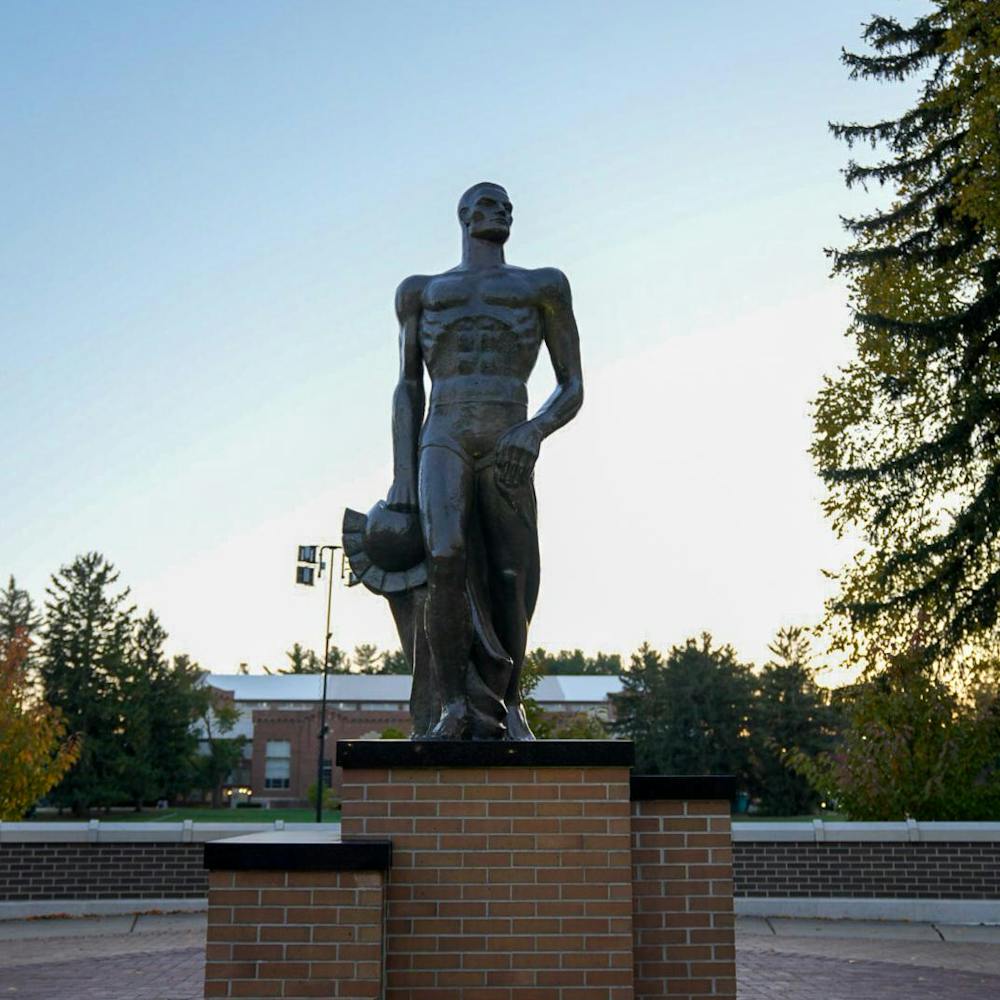Just ask any of the students at MSU what they think about equal access for gays and lesbians to jobs, housing, government benefits and more. They’ll most likely tell you they’re in favor of them. And why not? College students seem to be more understanding and open to change than generations before them. Ask their opinion on same-sex marriage, however, and that’s where opinions radically get divided.
On Jan. 1, New Hampshire became the fifth state to legalize gay marriage. Only six weeks after this, two measures were brought to the New Hampshire House that would change that standing. The House voted down both a bill that would repeal the law, and a proposed constitutional amendment that would have defined marriage as between one man and one woman. By overwhelmingly defeating two measures that would have taken away gays’ right to marry, the House continues the battle between those who favor same-sex marriage and those who oppose it.
Simply put, limiting the designation of marriage to a union between a man and a woman is unconstitutional. Denying marriage to same-sex couples takes away from one group a fundamental and important human right: to marry the person that one loves and to whom one has made a commitment. Those who sought to turn over the legalization of gay marriage in New Hampshire argued marriage is between a man and a woman and is an important institution in society.
But legally, marriage doesn’t have anything to do with a person’s gender. Marriage legally is defined as a civil contract between two people who meet the legal requirements for getting married established by the state. The United States has not yet constitutionally established that marriage is defined as a union between a man and a woman. It is the U.S. federal government that does not recognize same-sex marriage and is prohibited from doing so by the Defense of Marriage Act passed in 1996. Because of this, prohibiting the union of a same-sex couple might stand up in most courts, but still goes against everything the United States was built on: that every American is entitled to equal rights. It is unfair and unjust to deny marriage in a democracy where civil unions are supposed to be provided to all citizens unilaterally.
Denying one group the right to marry also has many adverse emotional and financial consequences. Even if a same-sex couple has been together longer than most marriages last today, one partner can’t share the benefits of the other like in an opposite-sex marriage. Examples of these benefits include Medicare, Social Security, medical leave and the rights to visit his or her partner in a hospital and make medical decisions if they are incapacitated. Imagine a gay couple that has raised a family together, and one parent dies. Legally, if the children were biologically related to the deceased parent, the surviving partner could have his or her children taken away by the biological relatives of said children. Although the living parent might have raised the children from the moment they were born, under the current law, he or she has no rights to keep their children. Imagine the devastating emotional effects this can have on the children and parents.
Many who are against same-sex marriage argue that marriage between a man and a woman is critical to maintaining social stability, and society pays a high price when marriage is devalued. But in a country where nearly 50 percent of marriages end in a divorce, little white chapels are erected for marriages on the fly and Britney Spears can get an annulment after a mere 55 hours of wedded bliss, how high a value does marriage have in the first place?
Marriage between a man and a woman is nothing but naturalistic fallacy. Just because it’s seen as right and natural by most Americans doesn’t mean it is. Also, this mindset of a sacred union between male and female pertains only to a certain region in a certain time range. Look outside the U.S. and the views of marriage drastically vary from one country to the next. The same goes for views across time. It only is the view of a majority that keeps same-sex marriage from happening, not the laws of nature.
I don’t understand how people can be so against something that doesn’t affect their own lives. People fight so passionately against gay marriage, yet they can’t see the consequences of how their views are hurting those who love each other. What does it accomplish to keep ourselves divided over an issue that should be a given right for all Americans in the first place?
Ellen Mitchell is a State News intern. Reach her at mitch522@msu.edu.
Support student media!
Please consider donating to The State News and help fund the future of journalism.
Discussion
Share and discuss “Same-sex marriage opponents wrong” on social media.






